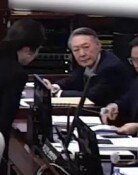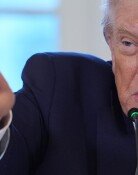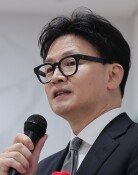S. Korea could reconsider GSOMIA if Japan’s measures are reverted
S. Korea could reconsider GSOMIA if Japan’s measures are reverted
Posted August. 28, 2019 07:23,
Updated August. 28, 2019 07:23
South Korean Prime Minister Lee Nak-yeon said at the National Assembly Tuesday that with three months left until the termination of the General Security of Military Information Agreement (GSOMIA), South Korea and Japan may be able to work to find middle ground. “The government could reconsider its decision to end the GSOMIA if Japan agrees to withdraw its unjust measures on South Korea,” he said, opening up a possibility for the bilateral military intelligence-sharing pact to be kept in place.
Lee’s remarks came one day ahead of the expected enforcement by Japan of its removal of South Korea from the “white list” of trading partners. Some may criticize the South Korean government floating the idea of reversing its decision in a few days, but the prime minister’s comment seems to be intended to stress that the two countries should not let the bilateral relationship get even worse. Such a comment may affect how Japan will act in response and may also appease the United States, which has expressed strong disappointment at Seoul’s move, while urging it to more actively intervene in the ongoing disputes between its two Asian allies.
In fact, Prime Minister Lee and Foreign Minister Kang Kyung-wha were reportedly sidelined from discussions regarding the termination of the intelligence sharing pact with Japan, and were apparently taken aback by the final decision. This must be why the government’s announcement process including giving an official and unofficial explanation did not go smoothly and the bilateral conflicts, which had temporarily reached a state of lull, further deepened. Now, Lee’s latest remarks can serve as an opportunity to resume diplomatic communication between the two countries.
Granted, whether South Korea could reconsider the deal fully depends on Japan’s attitude going forward. Japanese Prime Minister Shinzo Abe is still calling for South Korea to “keep the promises between countries” and Japanese senior officials have also held a tough stance that Japan’s exclusion of South Korea from the “white list” will be enforced as planned. Yet, Lee’s remarks may be taken into account by Tokyo when they decide the level of enforcement and also affect the Abe administration’s overall stance in the future.
It would be not easy to restore trust between South Korea and Japan. Seoul should mobilize its possible channels at all levels to find diplomatic solutions. The government needs to make the most of the forthcoming occasions including the United Nations General Assembly scheduled to be held in New York next month and Japanese Emperor Naruhito’s enthronement in October. While it is important for Seoul to respond in a resolute manner at a national level to fight against Tokyo, it is also required for the government to use its ability to create positive results through diplomacy.




![[단독]김경 “1억원 줄때, 강선우도 함께 있었다” 자수서](https://dimg.donga.com/c/138/175/90/1/wps/NEWS/IMAGE/2026/01/14/133148772.5.jpg)


